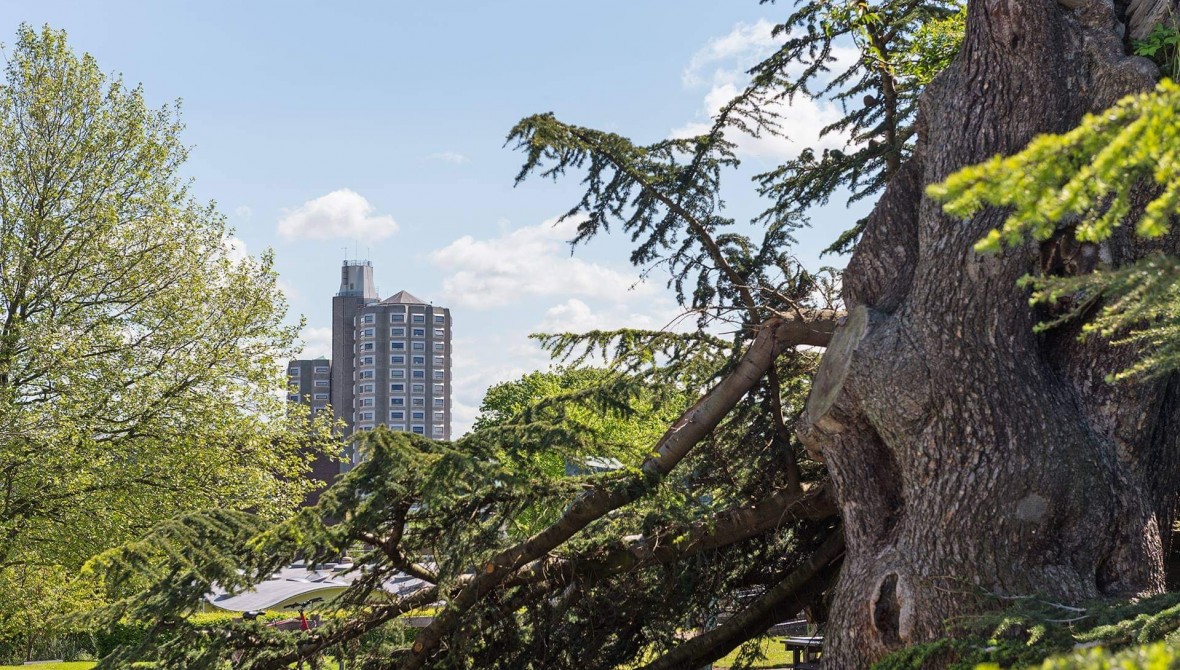Branching Out
Radar collaborated with MK Gallery, Milton Keynes, on workshop-led programmes exploring the social and cultural value of trees.

(Photo credit: Cedar of Lebanon, Image courtesy of Loughborough University.)
Radar and MK Gallery in Milton Keynes collaborated on a workshop-led programme, 'Branching Out,' that explored the social and cultural value of trees.
The programme examined the emotional connections people had developed with woodlands, which had contributed to a rich body of myths, folklore, and traditional culture.
Artist Felix Loftus was commissioned to lead a series of five creative sessions with various groups in Milton Keynes. These sessions captured stories about trees from local perspectives, which informed a collective artwork and exhibition at MK Gallery’s Project Space from 2-4 June. The project was funded by MK Community Foundation.
Loftus is a computational artist, technician, and creative educator who specialized in low-power digital photography and interactive fiction games. He explored how technology could be a tool for re-enacting and restoring relationships with the land and the more-than-human world.
The Branching Out program was connected to the research project of the same name, led by Loughborough University in collaboration with colleagues from the Open University and the University of York. The project combined biophysical data and storytelling to capture the social and cultural value of trees. It aimed to develop new ways of mapping, predicting, and communicating social and cultural values to support evidence-based decision-making and management.
Professor Mike Wilson, Head of Creative Arts at Loughborough University, remarked, “Branching Out is a very exciting project to be part of. Not only did we have the opportunity to make a real difference in the way that social and cultural values of trees were properly considered, leading to fully rounded and informed planning and policy-making. But also to integrate our research in storytelling with environmental and social science expertise, as a way of bringing additional voices and experiences into the public discourse around the future of our urban treescapes.”
This project was funded by the MK Community Foundation

